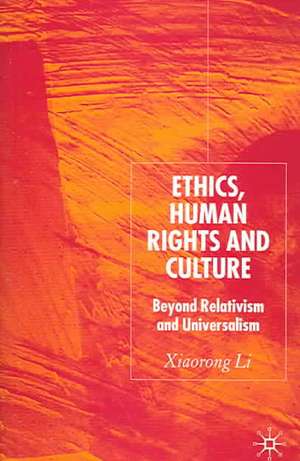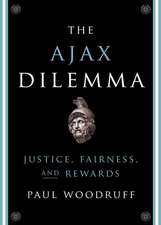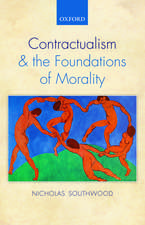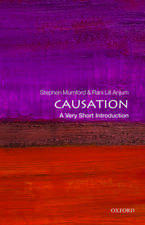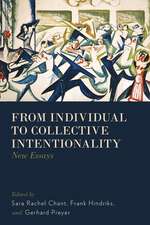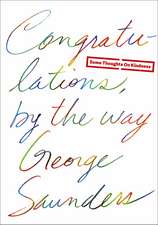Ethics, Human Rights and Culture: Beyond Relativism and Universalism
Autor X. Lien Limba Engleză Hardback – 27 ian 2006
| Toate formatele și edițiile | Preț | Express |
|---|---|---|
| Paperback (1) | 637.93 lei 6-8 săpt. | |
| Palgrave Macmillan UK – 27 ian 2006 | 637.93 lei 6-8 săpt. | |
| Hardback (1) | 642.51 lei 6-8 săpt. | |
| Palgrave Macmillan UK – 27 ian 2006 | 642.51 lei 6-8 săpt. |
Preț: 642.51 lei
Preț vechi: 755.88 lei
-15% Nou
Puncte Express: 964
Preț estimativ în valută:
122.98€ • 133.63$ • 103.37£
122.98€ • 133.63$ • 103.37£
Carte tipărită la comandă
Livrare economică 21 aprilie-05 mai
Preluare comenzi: 021 569.72.76
Specificații
ISBN-13: 9781403985484
ISBN-10: 1403985480
Pagini: 300
Ilustrații: XXII, 274 p.
Dimensiuni: 140 x 216 x 20 mm
Greutate: 0.48 kg
Ediția:2006
Editura: Palgrave Macmillan UK
Colecția Palgrave Macmillan
Locul publicării:London, United Kingdom
ISBN-10: 1403985480
Pagini: 300
Ilustrații: XXII, 274 p.
Dimensiuni: 140 x 216 x 20 mm
Greutate: 0.48 kg
Ediția:2006
Editura: Palgrave Macmillan UK
Colecția Palgrave Macmillan
Locul publicării:London, United Kingdom
Cuprins
Introduction PART I: LIVING WITH CULTURAL PARADOXES Paradoxes of Culture The Ethical Significance of Culture A Cultural Critique of Cultural Relativism PART II: TRANSCENDING DICHOTOMIES Destructive of Cultural Community? Intolerant of Cultural Pluralism? PART III: HUMAN RIGHTS: THE VIEW FROM ANYWHERE Cross-Cultural via the Inter-Subjective From Human Values to Inherent Rights From Practical Reasons to Extrinsic Rights An Unfair Utopia?
Notă biografică
XIAORONG LI is Assistant Professor at the Institute for Philosophy and Public Policy, University of Maryland, USA. Previously, she was a Fellow at the Stanford Humanities Centre (1992-93) and a member of the Institute of Advanced Study (1999-2000). Her publications include Asian Values and the Universality of Human Rights, Human Rights: Priority Ranking, Conflicts and Trade-Offs, and A Critique of Rawl's Freestanding Justice.
